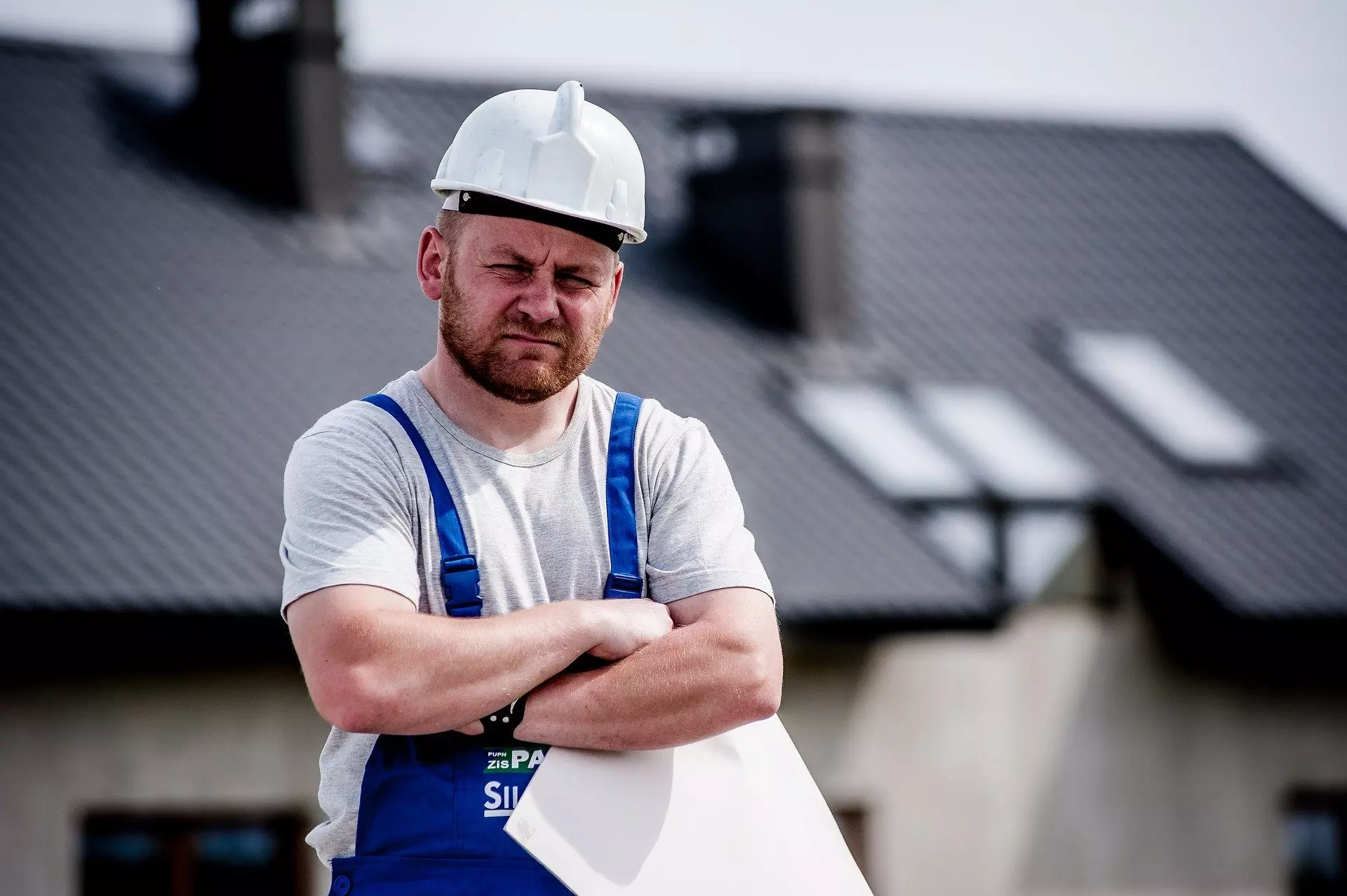Find out what you need to know before meeting with an architect. This guide explains the questions to ask, the information to bring, and the process to expect so you can start your building project with confidence.
Bob Trimble is a chartered architect registered with RIBA with 30 years experience in the industry. Trimble Architects work throughout Hounslow, Twickenham, Richmond, Kingston Upon Thames, Teddington and the surrounding areas of London.
What to prepare when meeting an architect
Start with a clear brief
Before working with an architect, take time to write a short client brief. Explain who you are, who will live in the home, and what daily life looks like.
Say how you spend your time, what you enjoy, and how you want the space to feel. Set out the needs you must meet and the nice‑to‑have wishes you would like to achieve. Include the number of rooms or bathrooms you think you need, any favourite furniture to keep, and the style you like.
Pictures and examples help the architect understand what you have in mind, so bring photos, links or a simple scrapbook to the first meeting.
What to bring to your first meeting

For an initial meeting, come prepared. Bring a short list that covers your budget, your timescale, and any information you already hold about the building or site.
Old drawings, survey notes, photos of the location, and utility details all help.
If you have saved examples of homes or rooms you like, bring those too. It is a good idea to include a note on any constraints you already know about, such as access, trees, or neighbours.
If you have never had a meeting like this before and it is your first time, that is fine. The aim is to talk openly so your architect can provide clear answers and suggest the best way to start.
Lifestyle, layout and the size of your home
Think about how you live now and how you want to improve it. If you want a bigger space, say why. You may want a safe place for young children, a quiet area to work, or a guest room for family.
Sometimes a smarter design can do more than extra floor area. A skilled architect can plan and manage the layout so rooms flow well and light reaches the right places. In many cases, clever storage or a better kitchen layout can achieve your goals without a larger build.
Budget, fees and money
Share your budget at the initial meeting. Hiding it makes the project harder to manage and can lead to problems later.
Fees can be charged as a fixed fee, a percentage of the construction cost, or an hourly rate. Ask the architect how they set fees, what each service includes, and what extra costs could arise. Allow a small reserve for changes and unknowns.
The architect can also outline likely costs for surveys, planning, consultants and construction, so you are aware of the full picture. Agree how and when you will pay, and check when each stage will be invoiced.

Planning permission and other checks
Early planning is vital. Your architect will check if you need planning permission, building control approval, or other consents. If you live in a conservation area or in a listed building, more rules may apply.
In that case, the process can take longer and designs may have to change to meet local requirements. It is also a good moment to discuss party wall matters, flood risk, access, location limits and any covenants. Getting this right at the start saves time and money at the end.
Surveys and the information your architect will need
Most projects need a measured survey so the architect can draw the existing building with accuracy. Soil tests may be needed if you plan to build an extension.
Service maps for water, gas and electricity help to avoid problems later. Your architect will provide a clear list of what is required and will help with finding trusted surveyors. Share any past reports you find, even if they seem minor. Small details can influence the design.
How the design process works
The design normally moves through clear stages. It starts with ideas and rough plans to explore options. It then develops into a detailed plan that shows room sizes, windows and space use.
After that come technical drawings that a builder can work from. Your architect should explain each stage, what you will see, and when you will need to make decisions.
You should also learn how they will track progress, how changes will be handled, and how they will manage quality. This shared understanding sets fair expectations for everyone.
Timelines and how to manage them
Ask how long each stage might take, including approvals and tendering. Lead times for materials can be long, so early choices help.
Agree how often you will meet and when you will review progress.
Decide the questions you need answers to before moving to the next stage. Being clear about time helps the whole team keep the project on track.
Your project team and services
An architect often works with other people. The team might include a structural engineer, a cost adviser, a planning consultant and a builder. Talk about who will do what, and which services are part of the architect’s fee. Ask who will be your day‑to‑day contact person, who will visit site, and how the team will handle construction queries. A clear list of roles helps the project run smoothly.
Style, materials and examples
Share examples of style you enjoy. Instead of saying only that you want a classic or modern look, explain what you like about light, colour, texture and space. Say how you want rooms to feel at different times of day.
Your architect can then show examples and samples that fit your brief. You can discuss durable materials, natural light, storage and acoustic comfort. These factors all shape daily life and are worth careful thought.

Sustainability and long‑term comfort
Ask how the design can improve energy use and comfort. You might look at insulation, glazing, shading and ventilation. You can also consider solar panels or heat pumps if they suit the location and budget.
Think about maintenance over the long term and future needs as family requirements change. Good choices now can save money and reduce running costs.
From drawings to construction
When the design is ready, the architect can help you find and check builders, and prepare tender documents so prices can be compared fairly.
During construction, agree how site issues will be handled and how often you will have site meetings. Expect some change as the build unfolds.
The key is to manage change well, record decisions, and keep a close eye on budget, time and quality. At the end, allow time for snagging and handover so the building performs as planned.
Common constraints and how to handle them
Every project has constraints. They might be size, structure, soil, or planning rules.
A skilled architect will set out options and explain the case for each one, with examples of how other projects solved similar problems.
You should expect honest advice about what is realistic within your budget. Good management and clear choices early on reduce risk later.
Questions to ask at each stage
There are many questions to ask as you move forward. In the early stage, you might ask about the process, fees, timeline and risks. Before planning, you might ask the architect how the design meets local policy and what planning permission route is likely.
Before tender, ask how builders will be chosen and how costs will be checked. During construction, ask how changes will be approved, who signs off work, and how progress is reported. Keep notes of the answers so everyone has the same understanding.
What happens if things change
Changes do happen. In that case, agree a simple change process. The architect should provide a short note that explains the change, the cost and time impact, and any knock‑on effects. This keeps expectations clear and protects your budget. It also helps the team keep the project on plan.
How to judge experience and fit
Finding the right architect is about more than drawings. Check their experience with similar projects in your location. Look at past work and read how clients found the service. Meet the person who will be your main contact and see if you can talk easily. A good fit helps the work go well from start to end.
Before Meeting With An Architect: Final thoughts
Your first meeting sets the tone for the whole building project. Come prepared, ask clear questions, and share honest information about your goals, budget and constraints. With the right team, good planning and steady management, you can achieve a home that suits your life and makes each space work better.
If you would like help to plan, design and build, Trimble Architects can provide a complete architectural service from first ideas to handover. Our architects have wide experience across homes and small commercial projects, and we are happy to meet on site or online to discuss your project. Get in touch to find out how our services can help you from initial meeting to the end of the project.
Architects Near Me
If you are looking for architectural services throughout Hounslow, Twickenham and the greater London area, then get in contact with our team today. We can offer advice and begin guiding you towards making the right decision.
Bob Trimble is a chartered architect registered with RIBA. Bob Trimble has 30 years of experience working with residential and commercial property projects. For 4 years, Bob Trimble has worked from his housing association and private architectural practice for clients throughout Hounslow, Twickenham, Richmond, Kingston Upon Thames, Teddington and the surrounding areas of London.


